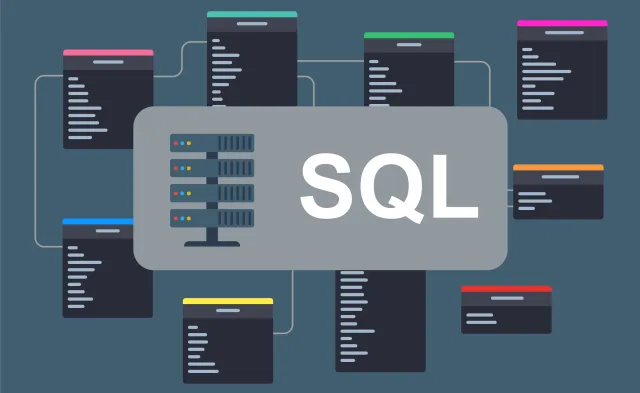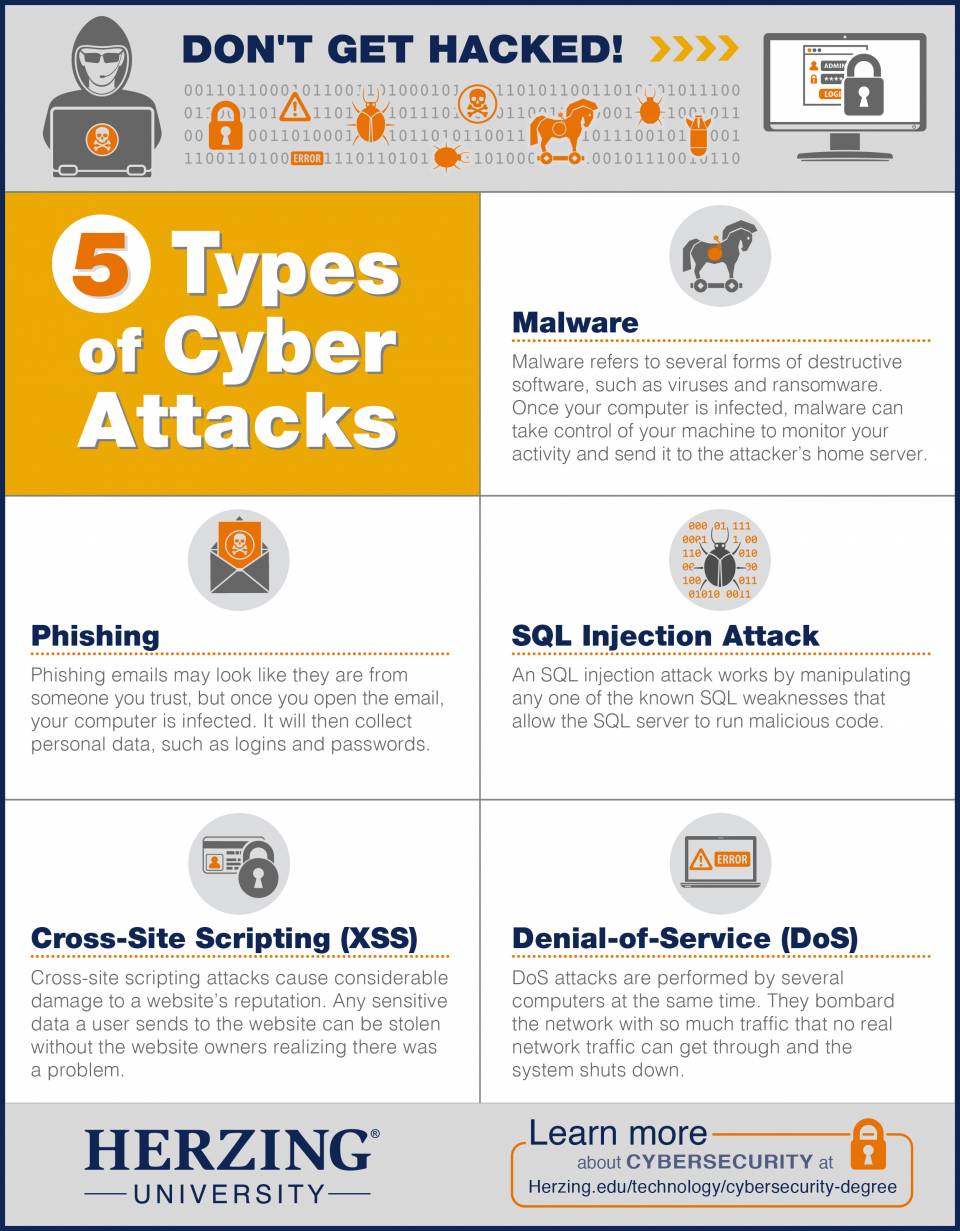Pathways
Choose your pathway in cybersecurity

- Program length: 32 months
- Classes: View the curriculum
- Degree required: None

- Program length: 12 months
- Classes: View the curriculum
- Degree required: Bachelor's

- Program length: 8 months
- Classes: View the curriculum
- Degree required: Bachelor's

- Program length: 8 months
- Classes: View the curriculum
- Degree required: Master's
Find your career pathway in the growing field of cybersecurity
| Pathways | Degree and certificate options for applicants with diverse educational backgrounds: bachelor’s degree, master’s degree, post-bachelor’s certificate and post-graduate certificate options |
|---|---|
| Format | 100% online courses you can take at home; flexible self-paced learning includes options for full-time or part-time enrollment |
| Certification | Coursework provides a foundation for select industry certifications from Cisco, CompTIA, and others1 |
| Hands-on | Interactive learning modules provide training with real cybersecurity tools and software; you can elect an internship option to gain real-world practical experience2 |
| Dual Credit | Potential eligibility to earn dual credit towards a Master of Science in Cybersecurity |
| Accreditation | Accredited by the Higher Learning Commission |
Learn More Today!

Satisfaction rate
Our overall student satisfaction rate, according to the 2024 Herzing Graduate Survey.
Prepare to become a certified cybersecurity professional
Each of our cybersecurity curriculums contain coursework designed to help you prepare for key industry certifications from Cisco, CompTIA, and more. Most industry certifications are tied to the completion of a single course.
Complete the requisite coursework and we will reimburse the application fees for up to three industry certifications upon submission of proof of successfully passing the certification exam.1
Our goal is your career success. Herzing University cybersecurity curriculums emphasize the industry-current knowledge and skills you need to earn the certification you need to qualify for the cybersecurity job you really want.

Career-focused curriculum
Discover the crucial knowledge and skills required to succeed in your work and build a foundation for continued career growth.
Flexible schedule
You can take classes during the day or in the evening. We work hard to help you maintain school-life balance, striving to be as flexible as possible for busy non-traditional students.
Virtual services
Access to extensive virtual services, including academic advising, tutoring, support services, technical support and library services.
Lifelong support
We support your ongoing career advancement by providing comprehensive, personalized student services with lifelong career coaching.
Rolling admissions
No application deadlines to worry about. Apply when you’re ready and prepare to get started soon.
Accreditation & Recognition
Our accredited & recognized online school
We strive to earn rank as one of the top private, nonprofit universities in the United States. Just as you work every day to become the best version of yourself, so do we as a university.
We are proud to have attained institutional accreditation in addition to industry recognition for our accomplishments helping students earn a college education and find career success.

Ranked by U.S. News & World Report among the best online bachelor’s degree programs in 2026.
Herzing University is institutionally accredited by the Higher Learning Commission (hlcommission.org), a regional accreditation agency recognized by the U.S. Department of Education.
What can I do with a degree in cybersecurity?



A bachelor’s degree focused on cybersecurity, as opposed to a more general IT or computer science curriculum, provides narrower coursework specifically regarding information security and the many relevant jobs under that umbrella.
For example, you can prepare for jobs on two general opposing “sides” of cyberattacks: on the defensive side as an analyst or responder (“blue” team) or offensive side as a penetration tester/ethical hacker (“red” team). Cybersecurity professionals may also work in governance, risk, and compliance to ensure systems are secure, compliant with regulations, and aligned with business objectives.
Over the course of your education, you will discover the diverse array of jobs available in the field of cybersecurity. Once you begin applying the skills you learn in coursework, you can determine the type of work that’s right for your unique abilities and personality.
U.S. News & World Report ranked Information Security Analyst the #6 Best Job in America for 2025. It’s a great time to begin earning the education you need to pursue an education in one of the top-rated career fields in the United States.
Career stats: Information Security Analysts*
Prepare to become a certified cybersecurity professional
Each of our cybersecurity curriculums contain coursework designed to help you prepare for key industry certifications from Cisco, CompTIA, and more. Most industry certifications are tied to the completion of a single course.
Complete the requisite coursework and we will reimburse the application fees for up to three industry certifications upon submission of proof of successfully passing the certification exam.1
Our goal is your career success. Herzing University cybersecurity curriculums emphasize the industry-current knowledge and skills you need to earn the certification you need to qualify for the cybersecurity job you really want.
Waived Enrollment Fee
Discover the educational pathway designed to maximize your career potential. Reach for greater heights with Herzing University.
Faq
Frequently Asked Questions
Didn't find the answer to your question? Send us an inquiry and we will be happy to answer all your questions!
On average, it takes 32 months to earn your degree in cybersecurity from Herzing University and become a cybersecurity analyst. You may be able to decrease how much time it takes by transferring up to 90 prior approved college credits into our bachelor’s degree program.
There are general education courses in math you may need to complete depending on your prior education.
However, mathematics is not a significant part of a career in cybersecurity, and our core cybersecurity curriculum does not include any math courses.
Cybersecurity specialists develop and deploy the plans and software that keep data secure, private, sound, and accessible by the right people within a business or organization.
Information assurance professionals focus on the business more than the software. Instead of focusing on the design of the security, they focus more on determining what data to protect, to what extent, and whether the protections are effective. and whether the protections are effective.
An undergraduate cybersecurity degree is a technical degree that offers students the knowledge needed to protect and defend internet/intranet computer networks, operating systems, and data from cyber attacks. It focuses on systems thinking, security principles, and adaptive incident response tactics.
Herzing’s cybersecurity program covers additional topics in ethical hacking, artificial intelligence and machine learning, cloud computing, wireless security, data privacy, digital forensics, and more.
The curriculum is designed to establish foundational cybersecurity topics such as networking, routing & switching, cloud computing, programming in Python, and information systems—then advance to more specialty areas including artificial intelligence, governance, risk and compliance, Linux administration, forensics, ethical hacking, and much more.
This does not fully display the depth of a bachelor’s degree curriculum. Stepping into the field of cybersecurity can be very overwhelming with limited structure and guidance. We strive to progress course study at a pace which helps you establish foundational concepts and advance to distinct branches of study relevant to unique occupations in the field.
People who look at cybersecurity programs may also be interested in different types of IT degrees, such as an information technology (IT) degree program. This degree can help prepare students to install, maintain, manage, repair and secure complex computer network systems. IT technicians support customers who are experiencing computer-related problems and troubleshoot components, hardware and software, including printers, scanners, email and work processes.
Students with a stronger interest in building applications or learning to code may prefer to explore our computer science degree program.
As with any skill, learning cybersecurity takes study, practice, and hard work. However, anyone who takes genuine interest in programming, how computer networks work, and security in the age of technology is capable of learning the fundamentals of cybersecurity.
Yes, it's worth it!
Today, cybersecurity is more important now than ever before. There are large amounts of sensitive data online, including personally identifiable information (PII), protected health information (PHI), and intellectual property, all of which needs protecting.
In addition to potential high earnings and a strong projected job outlook, the field can also be personally rewarding because you can help protect important data belonging to people and organizations. The field is growing, with more and more doors opening up to great career opportunities.
If you enjoy IT, problem solving, and enjoy technical challenges, take the first step with Herzing University and start your new career.
Information Technology (IT) is a broad and evolving career field encompassing a wide variety of tasks and core competencies. Because of this there are a few key types of IT degrees to choose from, including:
The average pay for information security analysts was $127,730 per year ($61.41 per hour), according to the U.S. Bureau of Labor Statistics (BLS).*
The BLS projects an increase in demand well beyond the average U.S. occupation, with employment projected to grow 29% from 2024-2034.*
Program Finder
Program Finder Results block
Post Master's Certificate in Cybersecurity
OnlineTo learn more about this program, click the Request Info button.
Master of Science in Cybersecurity
OnlineTo learn more about this program, click the Request Info button.
Bachelor of Science in Cybersecurity
OnlineTo learn more about this program, click the Request Info button.
Post Bachelor's Certificate in Cybersecurity
OnlineTo learn more about this program, click the Request Info button.
The Student Experience at Herzing
I decided to pursue another industry after leaving the military. I came to Herzing to learn more about the ins and outs of Cybersecurity.
Shon Westfall
Technology Student | Atlanta CampusThough I was worried about taking classes online, I found it to be a great experience that helped me improve my time management skills.
Lance Reed
Technology Student | Online CampusI chose Herzing because I could get a bachelor's degree in three years. The thing that stood out for me was the variety of software programs Herzing offers.
Ryan Kinney
Technology Student | Madison CampusDisclosures
- Certifications may provide greater opportunity for employment but are not a state specific requirement. Most industry certifications are tied to the completion of a single course. Complete the required coursework, and we will reimburse the application fees for up to 3 industry certifications upon submission of proof of successfully passing the certification exam.
- Online students in some states may not be allowed to take this internship due to state restrictions.
Herzing University is accredited by the Higher Learning Commission (hlcommission.org), an institutional accreditation agency recognized by the U.S. Department of Education.
View Herzing University Accreditation and Approvals
* BLS pay estimates calculate the median annual wage for various occupations. Per the BLS the median wage for an occupation is: "The wage at which half of the workers in the occupation earned more than that amount, and half earned less. Median wage data are from the BLS Occupational Employment and Wage Statistics survey." Bureau of Labor Statistics (BLS), U.S. Department of Labor, Occupational Outlook Handbook 2024. BLS median wage estimates do not represent entry-level wages and/or salaries. Multiple factors, including prior experience, age, geographic market in which you want to work, and degree level and field, will affect career outcomes, including starting salary and earnings as an experienced employee. Herzing neither represents that its graduates will earn the median salaries calculated by BLS for a particular job nor guarantees that graduation from its program will result in a job, promotion, particular wage or salary, or other career growth.
Recent Blog Posts
Waived Enrollment Fee
Discover the educational pathway designed to maximize your career potential. Reach for greater heights with Herzing University.






